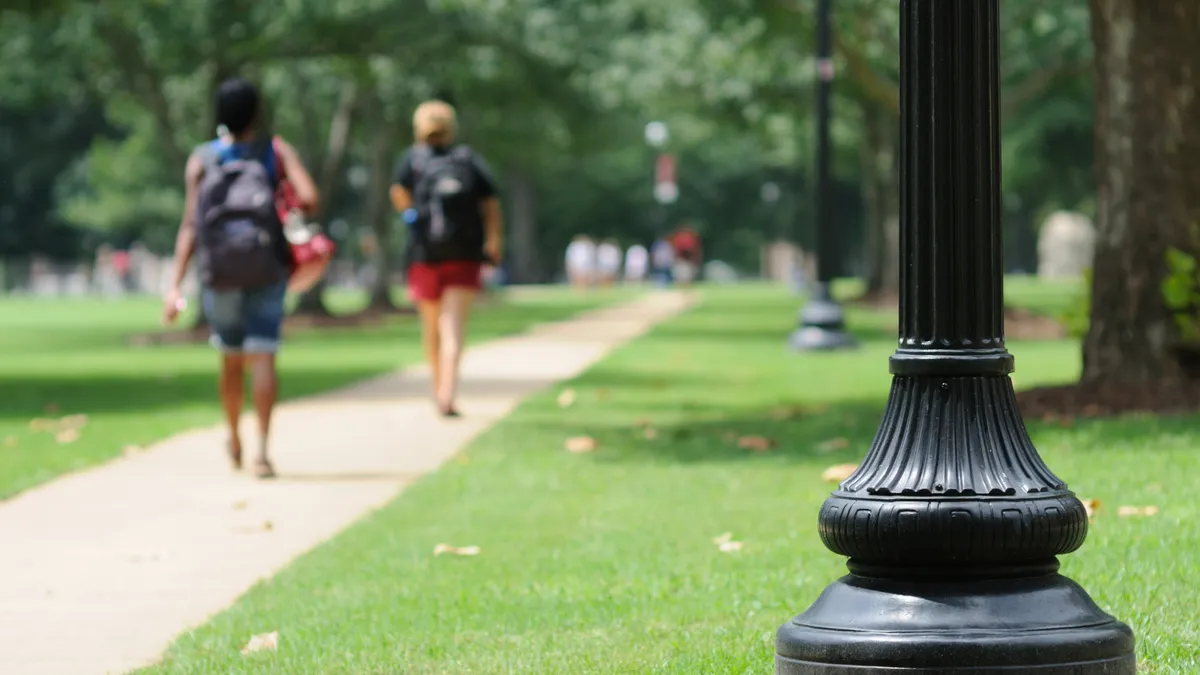Dive Brief:
- Some 700 colleges have open slots for the fall 2020 term, according to the annual College Openings Update, compiled by the National Association for College Admission Counseling (NACAC).
- The list of two- and four-year public and private colleges primarily serves to let students know which colleges have space, as well as financial aid and housing, for the coming academic year.
- This year's figure represents a major increase from previous years and is a sign that the coronavirus will likely hamper institutions' enrollment goals.
Dive Insight:
NACAC has published the list for more than 30 years to give students an indication of which colleges are accepting applications past the traditional admissions deadline of May 1. However, it includes colleges that maintain rolling admissions throughout the year, and some institutions report open spots to NACAC after the list is made public, meaning it is not comprehensive. Most, but not all, of the schools are located in the U.S.
Last year, only around 419 colleges reported they had available seats, housing or aid, signaling that the coronavirus likely is affecting students' college decisions and that officials may not have a clear picture of their enrollment until the fall term nears.
Many colleges extended their acceptance deadlines from May 1 to June 1 and beyond. Admissions experts have told Education Dive that institutions probably won't know their final enrollment numbers until close to the start of the academic year.
Before the pandemic, May 1 was becoming increasingly irrelevant for gauging enrollment.
Last year, NACAC struck key provisions from its ethics code that set the tone for how colleges recruit students. Doing so freed institutions to court and enroll students after they had already committed to a college, which was typically by May 1.
In March, NACAC further sought to remove itself from monitoring admissions, downgrading the code to a “statement of best practices” that merely outlines values for enrollment professionals.
Experts predicted administrators would aggressively pursue students who had already pledged to attend a college through generous financial aid packages and other perks. In a survey from consulting firm EAB earlier this year, 35% of enrollment leaders said they would consider poaching other colleges' students.
But the report was issued before the coronavirus disrupted college recruiting.
Admissions officials are highly concerned about filling their fall classes, another EAB survey found in March. Downturns in enrollment would severely stretch institutions' budgets, especially with the forecasted declines in state support for public colleges. The economic toll from the pandemic on students' and families' budgets could threaten their willingness or ability to pay.
Still, most current students said they intend to reenroll in the fall, according to research by the American Council on Education and the American Association of Collegiate Registrars and Admissions Officers.
NACAC said it will promote the list again after June 1, when colleges know more about their admissions timelines. It will remain on the NACAC website until July 30.









